Recent Articles
Popular Makes
Body Types
2021 Lexus LS vs. 2021 BMW 7 Series
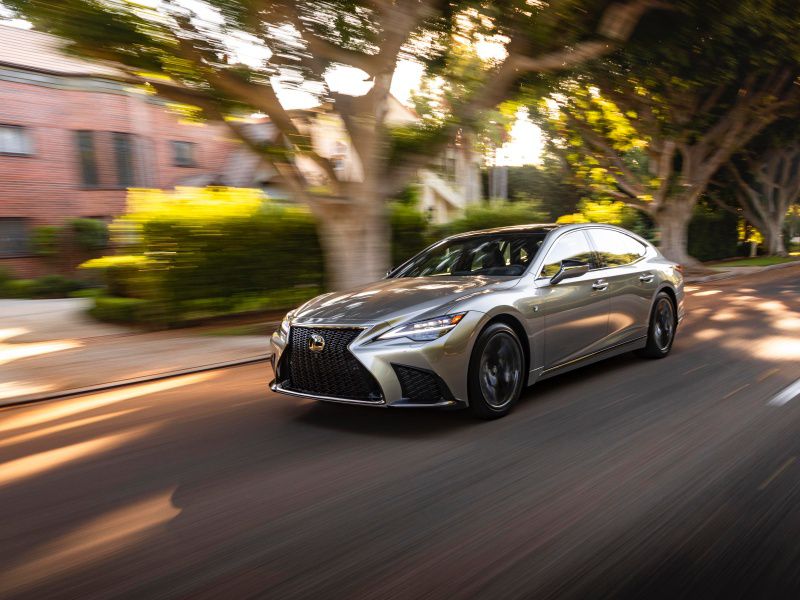
2021 Lexus LS 500 F Sport ・ Photo by Lexus
Though the demand for their luxury SUVs seems endless, the world’s high-end automakers continue to invest in their full-size flagship sedans. Last year, BMW gave its legendary 7 Series a serious facelift that included more power, updated features, and a more modern look. This year, Lexus fires back. It has given its largest sedan a meaningful list of upgrades — both inside and out — and the LS is the best it's ever been.
Both the BMW 7 Series and the Lexus LS offer a choice of rear- or all-wheel drive, powerful turbocharged engines, hybrid powertrains, spacious interiors, and a compelling mix of luxury, performance, and prestige. But which is best? Let’s examine the 2021 Lexus LS and 2021 BMW 7 Series in key areas and decide.
Styling and Design
Over the decades, BMW’s largest sedan has been the design leader in this class, with a mix of forward-thinking style and muscular, sports sedan flare. But it had grown conservative since its last full redesign back in 2016. However, last year, BMW reintroduced some drama to the 7 Series design by enlarging its grille, reshaping its bumpers, redesigning its lights, and adding a flatter hood. These changes aren’t radical, but they successfully modernize this luxury four-door ride.
Last redesigned in 2018, the LS has since shaken its conservative past as well. This big sedan has a long history of staid design, but its new shape swings the pendulum in the other direction with long, sexy curves, the most imposing grille in the class, and a hunkered-down stance. Like the BMW, it not only looks properly upscale and elegant, but sporty and youthful with aggressive wheel designs, cool details, and large chrome exhaust pipes.
Winner: Tie
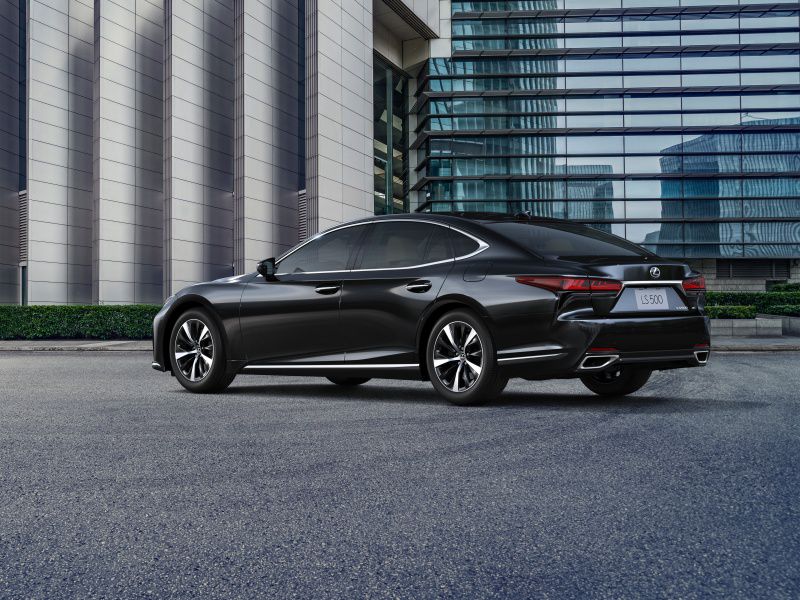
Photo by Lexus
Comfort and Cargo
Both sedans feature quiet interiors and excellent ride quality. Though they both seat five comfortably, the BMW is slightly larger and has considerably more rear seat legroom than the Lexus. Up front, however, we prefer the front seats of the Lexus. Redesigned this year, they offer more support, which causes less fatigue on long drives. The BMW’s front seats are also very comfortable, but they’re a bit too firm for our taste.
Both sedans also offer a seriously long list of luxuries, including heated steering wheels and seat massagers, and they offer about the same amount of trunk space. The BMW has 18.2 cubic feet of cargo space, and the Lexus has 17 cubic feet. Surprisingly, neither sedan has split-folding rear seats to expand that space, though they both have a power decklid.
Winner: Tie
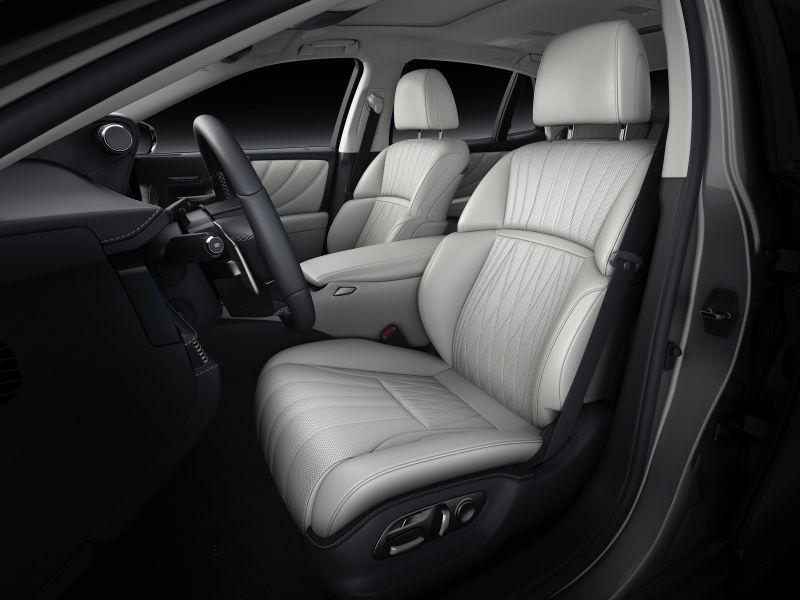
Photo by Lexus
Infotainment System
BMW practically invented the in-car infotainment system, and it continues to improve its iDrive system. The latest version is very easy to use, features a massive 12.3-inch touchscreen, beautiful graphics, and quick response. Navigation, a WiFi hotspot, and Apple CarPlay are standard; however, the system doesn’t support Android Auto. Tech options include a tablet docked between its rear seats so passengers can manipulate some infotainment functions.
We’ve been complaining about the interface of Lexus’s infotainment system for years. Its Remote Touchpad system was frustrating to use and distracting for the driver, but Lexus has fixed this problem. This year, the LS gets a new 12.3-inch touchscreen — a huge improvement. The system is now much easier to use. Navigation, onboard WiFi, Apple CarPlay, and Android Auto are standard. Lexus has also finally removed the controls for the sedan’s seat heaters and steering wheel heater from the system. They were buried within a sea of menus; now they’re operated by traditional buttons on the center console.
Winner: Tie
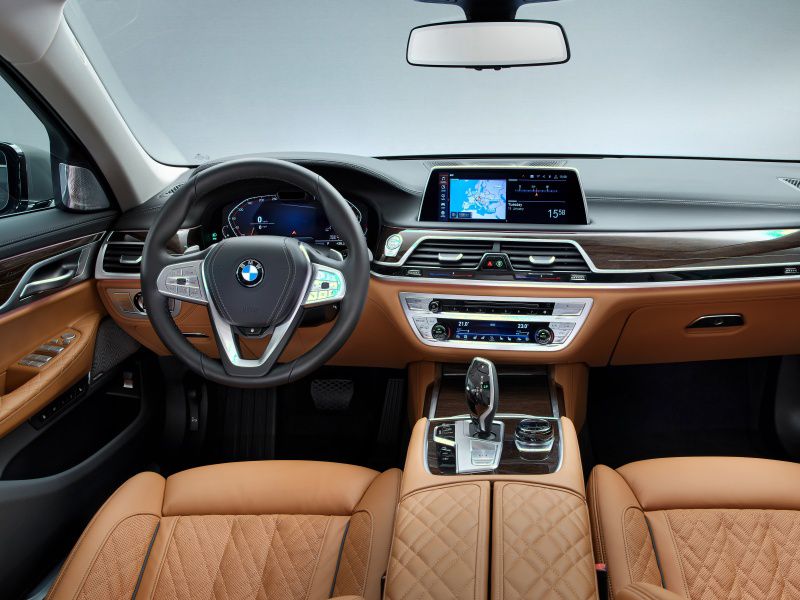
Photo by BMW
Safety and Technology
Neither of these luxury sedans has been crash-tested by the National Highway Traffic Safety Administration or the Insurance Institute for Highway Safety. This is common for this class. The NHTSA and the IIHS haven’t tested the Audi A8 or Mercedes S-Class, either.
Both sedans get a full suite of advanced safety systems, but the Lexus has more tech that comes standard. The LS is equipped with the Lexus Safety System+ 2.0 suite of safety systems, including automated emergency braking with pedestrian detection, lane-departure warning with lane-keeping assist, and adaptive cruise control with lane-centering assist. The BMW 7 Series gets standard low-speed automated emergency braking with pedestrian detection, while lane-departure warning, lane-keeping assist, and adaptive cruise control are available. Both sedans also offer smooth and precise autonomous systems that allow the cars to brake, accelerate, and steer on their own.
Winner: Lexus LS
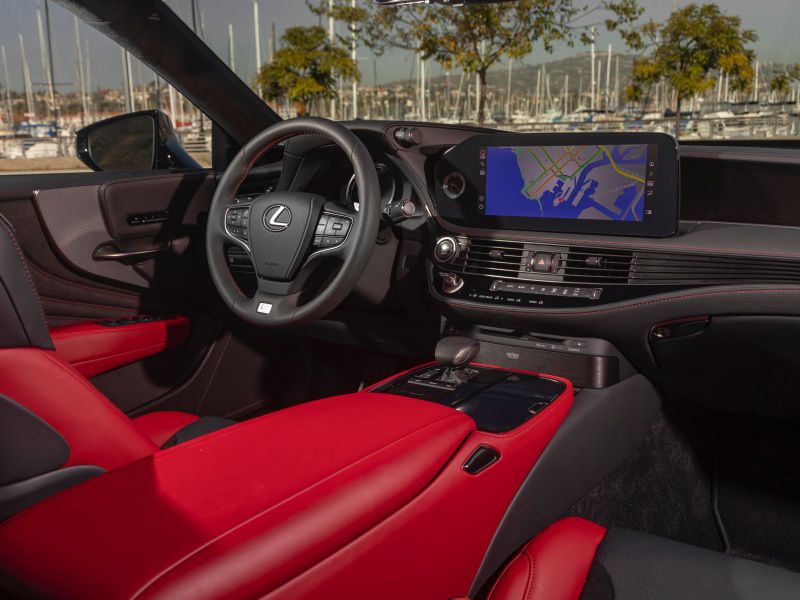
Photo by Lexus
Power and Performance
BMW offers the 7 Series in a wide range of models with five different powertrains. The base 740i is available with rear- or all-wheel drive, while the other variations only have all-wheel drive. The 740i is powered by a 335-horsepower turbocharged 3.0-liter inline six-cylinder that’s incredibly smooth and responsive. It hits 60 mph in about 5.3 seconds. The 745e plug-in hybrid has 389 total horsepower and hits 60 mph in about 4.9 seconds, while the twin-turbo V8-powered 750i with 523 hp scoots to 60 mph in just 3.9 seconds. But wait, there’s more — the Alpina B7 has a 600-hp V8, and the M760i is packaging a massive 601-hp twin-turbo V12. Both hit 60 mph in about 3.5 seconds. They’re two of the quickest and fastest sedans in the world.
In stark contrast, Lexus offers just two powertrains. The Lexus LS 500 is powered by the brand’s smooth and refined twin-turbo V6. With 3.5-liters, 416 hp, and 442 lb-ft of torque, it’s the largest and most powerful base engine in its class. Lexus says it hits 60 mph in 4.6 seconds, so it’s significantly quicker than the 740i. The smooth hybrid powertrain in the Lexus 500h pairs a 3.5-liter V6 with two electric motors to make 354 horsepower. It’s nearly as quick as the BMW’s hybrid with a 0-60 mph time of about 5.4 seconds.
Winner: BMW 7 Series
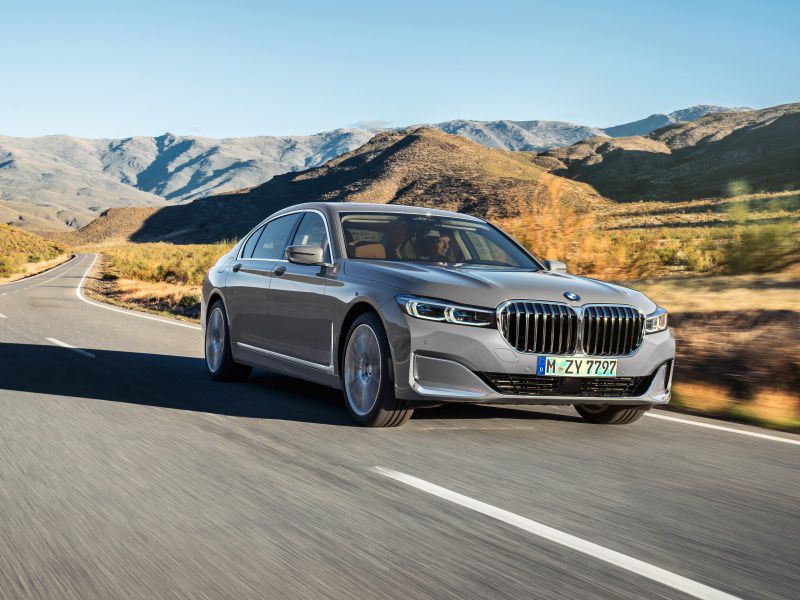
Photo by BMW
Fuel Economy
With its inline six-cylinder engine, the 740i has EPA-estimated fuel economy ratings of 22 mpg in the city and 29 mpg on the highway with rear-wheel drive. With all-wheel drive, those number dip to 20 mpg city and 27 mpg highway. The V8-powered 750i and Alpina B7 are rated 17 mpg in the city and 24 mpg on the highway, and the plug-in hybrid model, which can be driven up to 16 miles on electric power alone, has an EPA rating of 22 mpg combined.
The BMW has the edge. With rear-wheel drive, the Lexus LS 500 has ratings of 18 mpg in the city and 29 mpg on the highway. Those number dip to 17 mpg city and 27 mpg highway with all-wheel drive. Ratings for the hybrid model aren’t official yet; however, last year, the LS 500h, which has all-wheel drive, was rated 23 mpg city and 21 mpg highway.
Winner: BMW 7 Series
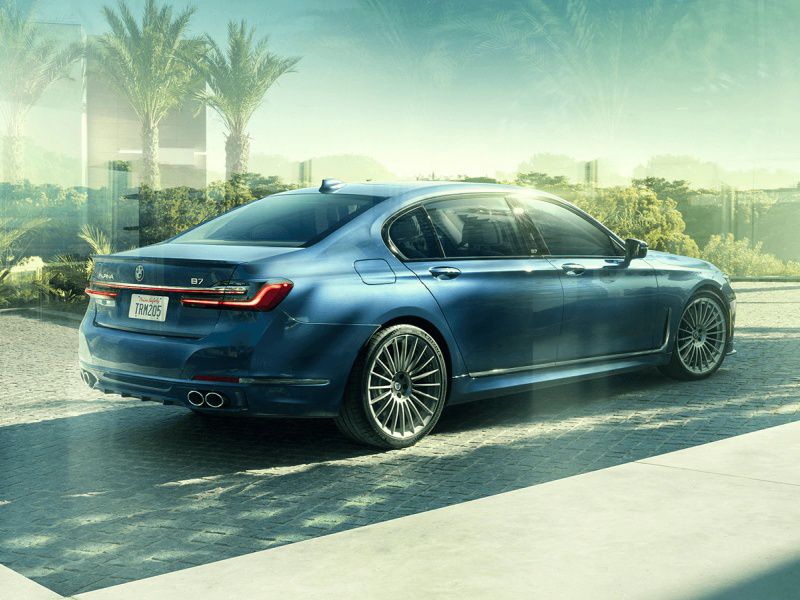
Photo by BMW
Driving Dynamics
A decade ago, the BMW would've won the driving-dynamics category hands down. Back then, the brand defined fun to drive, and the 7 Series was the sports car of the full-size luxury sedan class. On the other hand, earlier versions of the Lexus LS were about as exciting as an insurance seminar.
But a lot has changed in the last 10 years. The BMW isn’t quite as fun as it used to be, and the Lexus LS has become responsive and fun to drive. These two sedans are both impressively athletic for their size. They both feel solid, and each offers plenty of grip on the road. Despite their soft suspensions and supple ride quality, neither ever feels floaty or disconnected from the tarmac, and they both have Sport modes that add performance and additional feedback with the touch of a button. The BMW still has the edge because of the additional performance of the 750i, M760i, and Alpina B7, but the Lexus LS 500 is more fun to drive than the base BMW 740i.
Winner: BMW 7 Series
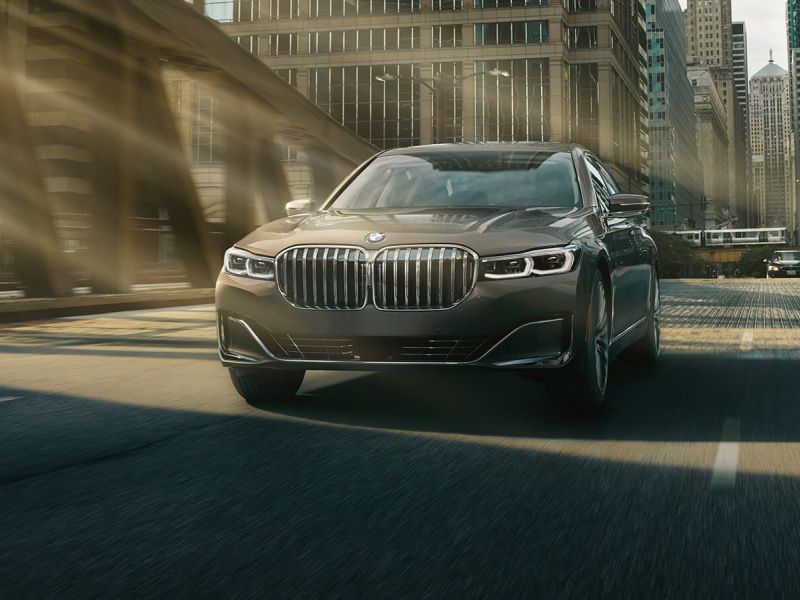
Photo by BMW
Value
The BMW 740i has a base price of $87,795, including a $995 destination fee. All-wheel drive costs an extra $3,000. The 745e hybrid is priced from about $97,000. Then, we’re quickly in the six-figures. The 750i starts around $104,000, the Alpina B7 costs about $144,000, and the V12-powered flagship of the line, the M760i, is over $158,000.
By comparison, the Lexus LS is a bargain. Its base price is $77,025, including a $1,025 delivery fee. All-wheel drive is a popular option for an extra $3,250. For a sportier look and more responsive handling, Lexus offers an F Sport model, which costs an additional $3,600. Loaded to the brim with options, the LS 500 costs about $100,000. The hybrid LS 500h will probably have a base price around $81,000.
Winner: Lexus LS
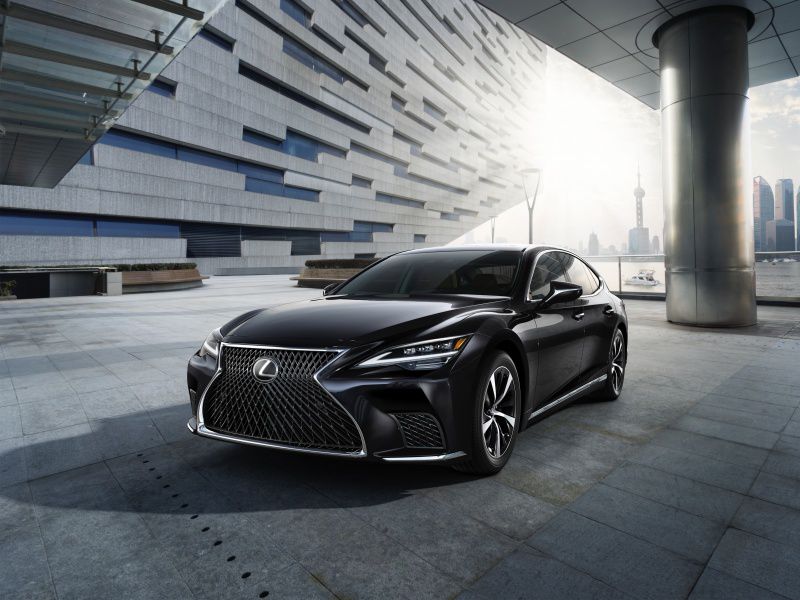
Photo by Lexus
Verdict
Overall, the BMW 7 Series is our winner. It’s larger, more spacious and offers a wider range of models and powertrains, including two engines with 600 horsepower. Though expensive, it’s ultimately the stronger performer of the two. The 7 Series still delivers an exceptional combination of luxury, refinement, comfort, features, and athleticism that have kept it at the top of this class since the 1970s. It’s one of the best cars in the world.
That said, the Lexus LS made it a very close race. It’s an impressive sedan that matches up well with the BMW in nearly every category. We’re impressed by its design, both inside and out, its driving dynamics, comfort, refinement, features, build quality, and safety tech. It’s an exceptional value, costing less than the 740i while offering more power and performance.
Winner: BMW 7 Series
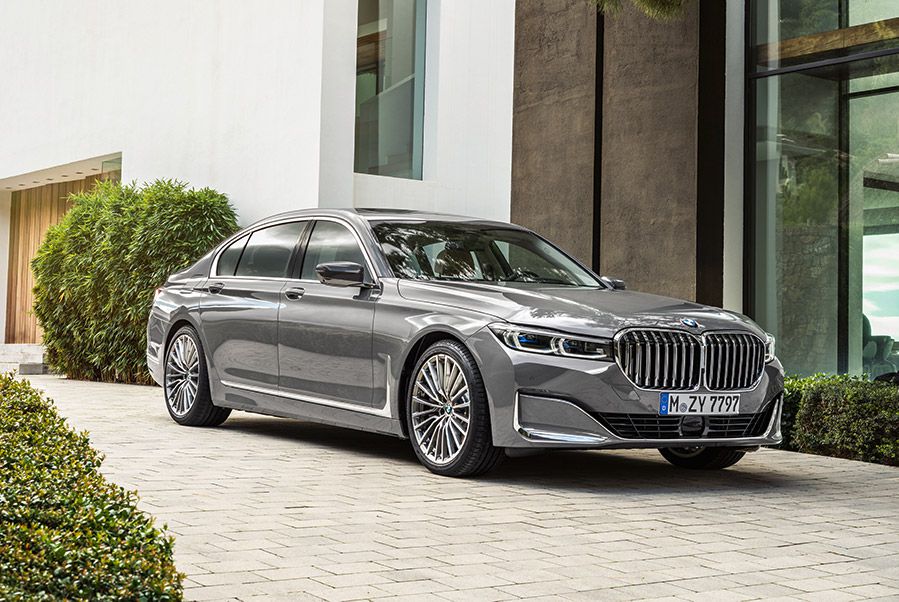
Photo by BMW